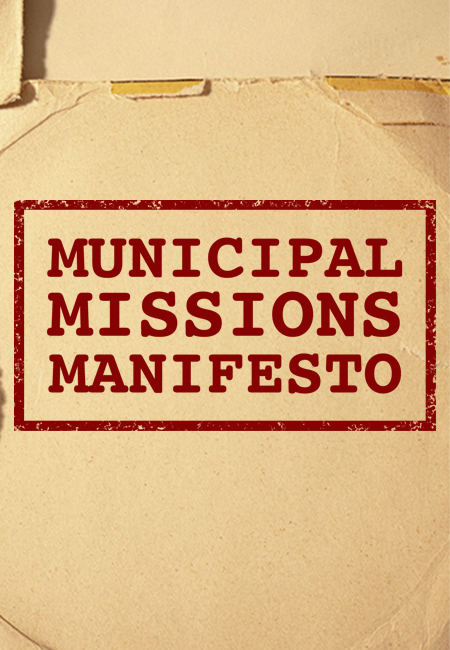The first part of our new Municipal Missions Manifesto series, which explores what a reset of local government should look like under the next administration, features Lorna Baxter.
The president of the Association of Local Authorities’ Treasurer Societies and executive director of resources & section 151 officer at Oxfordshire County Council calls for a review of legislation and statutory guidance and a refocus on what the purpose of local government should be.

It is evidentially clear that there isn’t enough funding for local government currently and this will not change whoever forms the next government later this year.
2025/26 and the medium term look bleak based on the last two forecasts from the Office for Budget Responsibility and the ambitions for increasing spend in other government departments, such as defence, could lead to further squeezes on the public sector.
Alongside this, the local government sector faces increased volume of work and complexity of demand across many of its services and a turbulent, uncertain economic and environmental context: adult social care, children’s services, housing and homelessness, special educational needs. The pressures are abundant. And I haven’t even mentioned inadequate and poorly maintained transport and property infrastructure.
It is invidious to think that local government can be saved solely by continually delivering efficiencies and productivity gains. Gershon efficiencies were a requirement almost 20 years ago, with a required target rate of 2.5% per year, which would in theory mean that efficiencies should have halved public sector spending by now. Efficiency has now reared its head again by way of required productivity plans. It’s true that there will always be ways of doing things better or quicker, but the scale of the challenge is too big for this to be a solution on its own.
So what is the alternative? We could think about reforms of council tax and business rates, as neither are fit for purpose. We could leverage more from businesses and the third sector, but the success of this is likely to be piecemeal and non-uniform. We could call for greater devolution of powers and responsibilities.
I think all of these should be on the table as there will be no single solution. However, I see the real opportunity being a review of legislation and statutory guidance and a refocus on what the purpose of local government should be now and looking towards 2050 and beyond.

The most sweeping changes to local government happened 50 years ago with the 1974 reforms. However, these reforms were more about structures than functions. It’s a noteworthy fact that people of our generation have seen the most significant changes in technology developments than at any other time in history. When I first started work there were no mobile phones, desktop computers or internet. We now have autonomous vehicles and artificial intelligence. However, despite these advancements, there have been no considered changes to legislation to reflect technological advances.
Likewise, there have not been any real policy shifts to reflect population growth, broader demographic trends, patterns of internal migration, modal shifts and other external world-wide factors.
With limited resources, a refocus on what local government’s purpose is and what its functions are is imperative. We need to consider whether some services would be better provided by others. Local government should not be the first, middle and last provider of choice. We need to consider whether some services should be provided at all, and we need to revisit legislation where it prescribes levels of service or reimagine how services are provided.
 For example, legislation from 1964 requires provision of a comprehensive and efficient library service. It does not prescribe that this should be provided in a building and with e-books being widely used now, let alone what the future might look like, a different service provision could be offered.
For example, legislation from 1964 requires provision of a comprehensive and efficient library service. It does not prescribe that this should be provided in a building and with e-books being widely used now, let alone what the future might look like, a different service provision could be offered.
We also need to consider whether some services should be charged for. The duty to provide free home to school transport was introduced in the Education Act 1944, when car ownership was one in 40 of the UK population. With increasing numbers of children receiving transport and a desire to encourage modal shift, is this a service which could be means tested?
If one of the main purposes of local government is fundamentally to protect the most vulnerable, then we need to think about how this is achieved. Early intervention and prevention are key to both improving lives and also reducing future intervention and cost. But as they are currently often non-statutory services, they are more at risk of cuts. If these services were mandated with more flexibility in other areas, maybe we could turn the tide of ever spiralling need and cost.
It is clear that the status quo is no longer an option. There needs to be a radical rethink. And this cannot take place without engagement with the sector to understand the context, challenges and ambitions of local places.
The advent of a new administration could be a very exciting time for local government, or it could be inauspicious. I know what I’m hoping for!
Lorna Baxter is president of the Association of Local Authorities’ Treasurer Societies and executive director of resources & section 151 officer at Oxfordshire County Council.
For more information on Municipal Missions Manifesto, read our introduction to the series here. All articles in the series are collected here.
—————
FREE bi-weekly newsletters
Subscribe to Room151 Newsletters
Follow us on LinkedIn
Follow us here
Monthly Online Treasury Briefing
Sign up here with a .gov.uk email address
Room151 Webinars
Visit the Room151 channel













